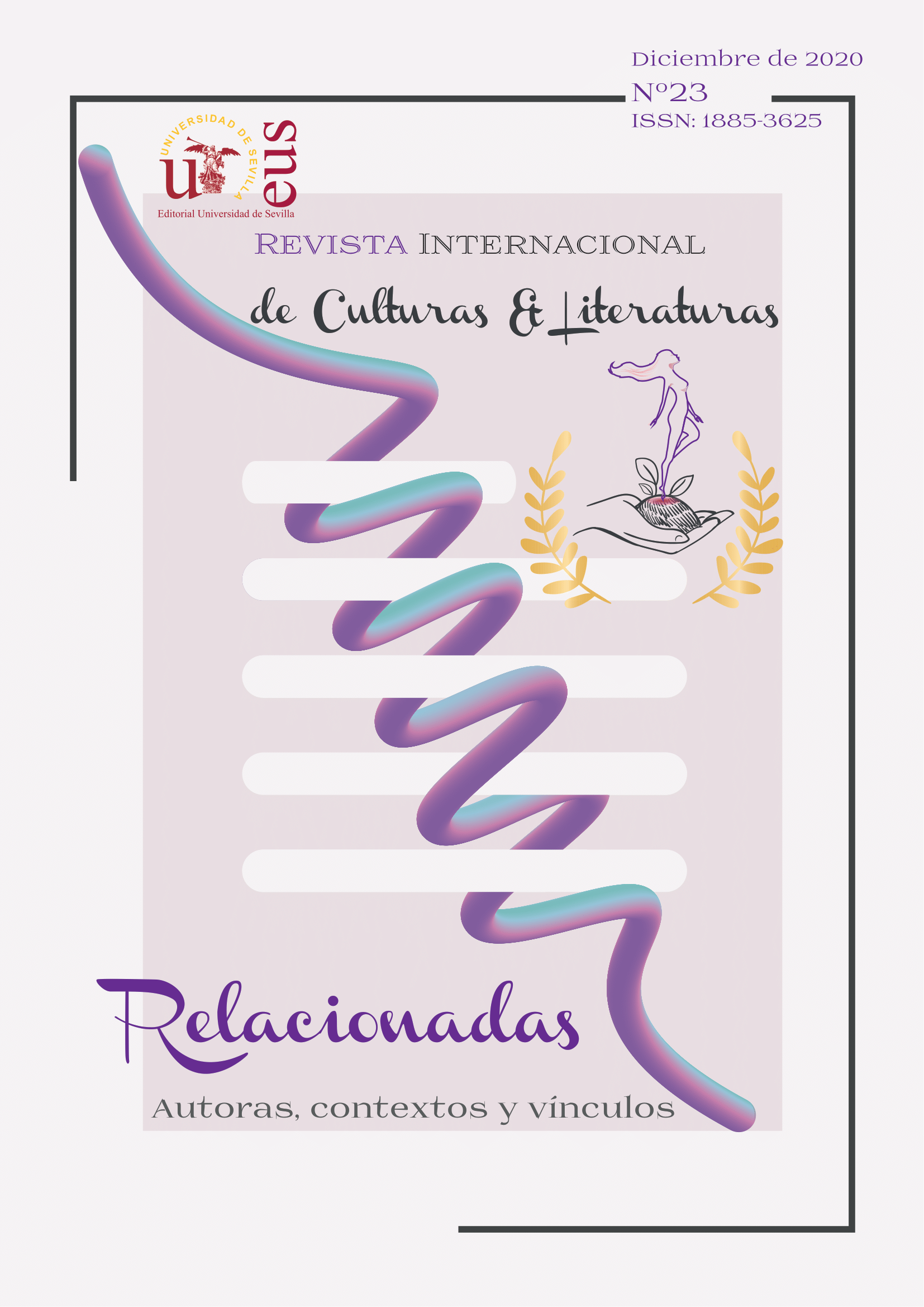Mary Shelley: il padre come ossessiva relazione
DOI:
https://doi.org/10.12795/RICL.2020.i23.13Palabras clave:
relazioni, padre-figlia, Frankenstein, Mary ShelleyResumen
L’obiettivo di questo articolo è analizzare le difficili relazioni paterno-filiali in Frankenstein di Mary Shelley, contestualizzando l’opera nella narrativa dell’Ottocento nel quale si tenta di ridefinire il ruolo della figura del
padre nella famiglia e nella società. Mary Shelley proietta nel mostro il suo rapporto conflittuale con Godwin creando un racconto obliquamente autobiografico e, allo stesso tempo, emblematico della ribellione delle figlie e scrittrici al criterio di autorità patriarcale.
Descargas
Citas
Bolen, J. S., Le dee dentro la donna, Roma, Astrolabio Ubaldini editore, 1991.
Botting, F., Mary Shelley, Frankenstein, New York, St. Martin’s, 1995.
Brown, W., The life of William Godwin, New York, 1926.
Brunetti, B., La figura del padre e la scrittura letteraria, Università degli studi di Bari, Milano, 2003.
Castellano, I. G. “El monstruo como alegoría de la mujer autora en el Romanticismo: Frankenstein y Sab”, Revista hispánica moderna 60.2 (2007), pp. 187-203.
Chaves, J. R., “Incestuosa Madame Frankenstein”, Anuario de Letras Modernas 11 (2003), pp. 117-120.
Darrow, M., Revolution in the house: Family, Class and Inheritance in Southern France, 1775-1825, Princeton, Princeton University Press, 1989.
Felski, R., Literature after Feminism, Chicago, University of Chicago Press, 2003.
Ferré, R., “Frankenstein: una versión política del mito de la maternidad.” Debate feminista, n. 6 (1992), pp. 32-43.
Foucault, M., The Order of Things, London, Tavistock, 1970.
Gilbert, S. M., and Gubar, S., The Mad Woman in the Attic: The Woman Writer and the Nineteenth Century Literary Imagination, New Heaven, Yale University Press, 1979.
Godwin, W., Enquiry Concerning Political Justice and it’s influence, general virtue and happiness by W. Godwin, 2 vol., G.C. And J. Robinson, Paternoster, Row, 1793.
Goffman, E., Estigma. La identidad deteriorada, Buenos Aires. Amorrortu, 1989.
Hardisson Rumeu, Ana. “La Criatura de Frankenstein y la lucha por el reconocimiento”, Isegoría 26 (2002), pp. 251-256.
Johnson, B., “My Monster / My Self”. Modern Critical Interpretations. Mary Shelley ‘s Frank- enstein, Ed. Harold Bloom, New York, Chelsea, 1987.
Kirkpatrick, S., Las románticas: women writers and subjectivity in Spain, 1835-1850.
Berkeley, University of California Press, 1989.
Madame de Stael, Corinna, Milano, Mondadori, 2006.
Marino, E., My Hideous progeny: padri e figli in Frankenstein di Mary Shelley, in Padri e Figli, Università di Roma Tor Vergata, 2009.
Parrini, R., “Los poderes del padre: paternidad y subjetividad masculina.” J. Olavarría & R. Parrini (Comp.), Masculinidades: Identidad, sexualidad y familia. Primer encuentro de masculinidad (2000): 69-78.
Pateman, C. “Feminist Critiques of the Public/Private Dichotomy.” Public and Private in Social Life. Eds. Stanley I. Ben and Gerald F. Gaus, New York, St. Martin’s Press, 1983.
Poovey, M., “‘My Hideous Progeny’: The Lady and the Monster”. Modern Critical Interpretations. Mary Shelley ‘s Frankenstein. Ed. Harold Bloom. New York, Chelsea, 1987, pp. 81-106.
Praz, M., Introduzione a Mary Shelley Frankenstein, Milano, Rizzoli, 2011, pp. 9-14.
Sapegno, M., Figlie del padre, Feltrinelli, Milano, 2018.
Shelley, M., Frankenstein, BUR Rizzoli, 2019.
Veeder, W., Mary Shelley and Frankenstein: The Fate of Androgyny, Chicago, University of Chicago Press, 1986.
Wollstonecraft, M., Vindicación de los derechos de la mujer, Madrid, Cátedra, 1994.

